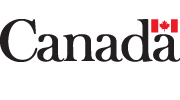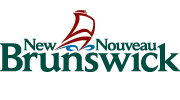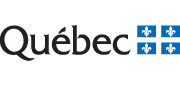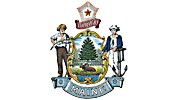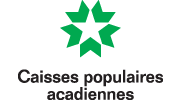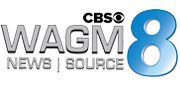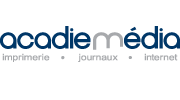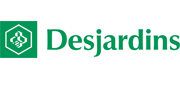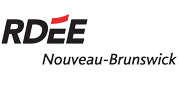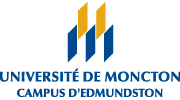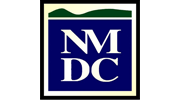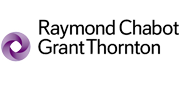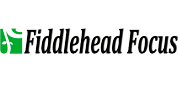Travel tips from the Canada Border Services Agency
Considering the potential increase of traffic at the New Brunswick / Maine border during the Congrès mondial acadien 2014, the Canada Border Services Agency (CBSA) is working with the 2014 WAC Organizing Committee to help minimize impacts at the border and ensure that crossings at the border during the event go as smoothly as possible.
There are also a number of things that Congress participants can do to help ensure a smooth border crossing.
Travel tips from the Canada Border Services Agency
Bring appropriate identification for yourself and for all children travelling with you, regardless of their age. CBSA officers watch closely for missing children and may ask you detailed questions about the children who are travelling with you. If you have or share legal custody of the children, have copies of the relevant legal documents, such as custody rights, on hand. Appropriate identification includes:
- a valid passport
- an enhanced driver's licence (EDL) or an enhanced identification card (EID);
- a NEXUS card, used where the program is offered;
- a Free and Secure Trade (FAST) program card, used in Fast lanes;
- a Canadian citizenship card;
- a Certificate of Indian Status;
- a birth certificate accompanied by a photo identification (such as a regular driver's licence) issued by a government; or
- a valid permanent resident card.
Plan ahead to avoid delays at the border. The CBSA suggests that you avoid travelling during peak periods such as afternoons and weekends, and use the Internet to keep track of wait times. You can consult border wait times on the CBSA Web site at www.cbsa.gc.ca, on Twitter, or on your cell phone at www.canada.gc.ca. You may also plan an alternative route back.
Declare all merchandise you have bought and have all your receipts on hand. Officers may ask you to show receipts for the goods you have purchased and your hotel receipts to verify the length of your stay outside Canada. Keep all of your receipts together and on hand to avoid unnecessary delays.
The CBSA reminds all travellers that changes were recently made to the limits of personal exemptions. Since June 1, 2012, the new limits of personal exemptions are:
|
After being away for: |
You can bring back goods, tax and duty free, worth up to: |
|
24 hours or more |
CAN$200 |
|
48 hours or more |
CAN$800 |
|
7 days or more |
CAN$800 |
Note that there are no personal exemptions for stays of less than 24 hours.
Alcoholic beverages and tobacco products may be included in your 48-hour or seven-day exemption, provided you are of legal age, but certain restrictions apply.
|
Exemption chart on alcohol and tobacco |
||
|
Only one of the following amounts of alcoholic beverages may be imported free of duty and taxes (when stays are more than 48 hours): 1.14 L (40 oz.) of liquor; or 1.5 L of wine; or 24 X 355 ml (8.5 L) containers of beer. You must be of legal age in the province of importation. |
||
|
The following amounts of tobacco products may be imported free of duty and taxes (when stays are more than 48 hours): 200 cigarettes; 50 cigars or cigarillos; 200 tobacco sticks; and 200 g (7 oz.) of manufactured tobacco (a special duty fee might be applicable). |
||
Know before you go. Certain goods are prohibited or restricted from entering Canada (weapons, certain plant and animal products, etc.). Certain restrictions exist related to the import of meat, eggs, milk products, honey, fresh fruit and vegetables, etc. You can find out more about this by consulting the I Declare brochure.
Referrals for secondary inspections. We understand that travellers may feel anxious when crossing the border and want you to know that secondary referrals should not be viewed as an indication of wrongdoing. They are a normal part of the cross-border travel process, which any returning resident or visitor to Canada may experience. To learn more about it, please consult: What to Expect: Secondary Services and Inspections.
NEXUS program. If you are a citizen or permanent resident of Canada or the United States, you can apply to become a member of NEXUS, a program designed to expedite the border clearance process for low-risk, pre-approved travellers into Canada and the United States. NEXUS members are encouraged to use their membership cards to save time by using automated self-serve kiosks in dedicated areas at designated international airports and by using designated lanes at the land border. Members can also report to border services officers by phone in advance of their arrival in the marine mode of transportation. More information about this program is available at www.nexus.gc.ca.
For more information, visit the CBSA Web site or contact the Border Information Service at 1‑800‑461-9999.
For calls outside Canada (long distance charges apply): 1-506-636-5064 or 1-204-983-3500
For people with a hearing or speech disability at: 1-866-335-3237
